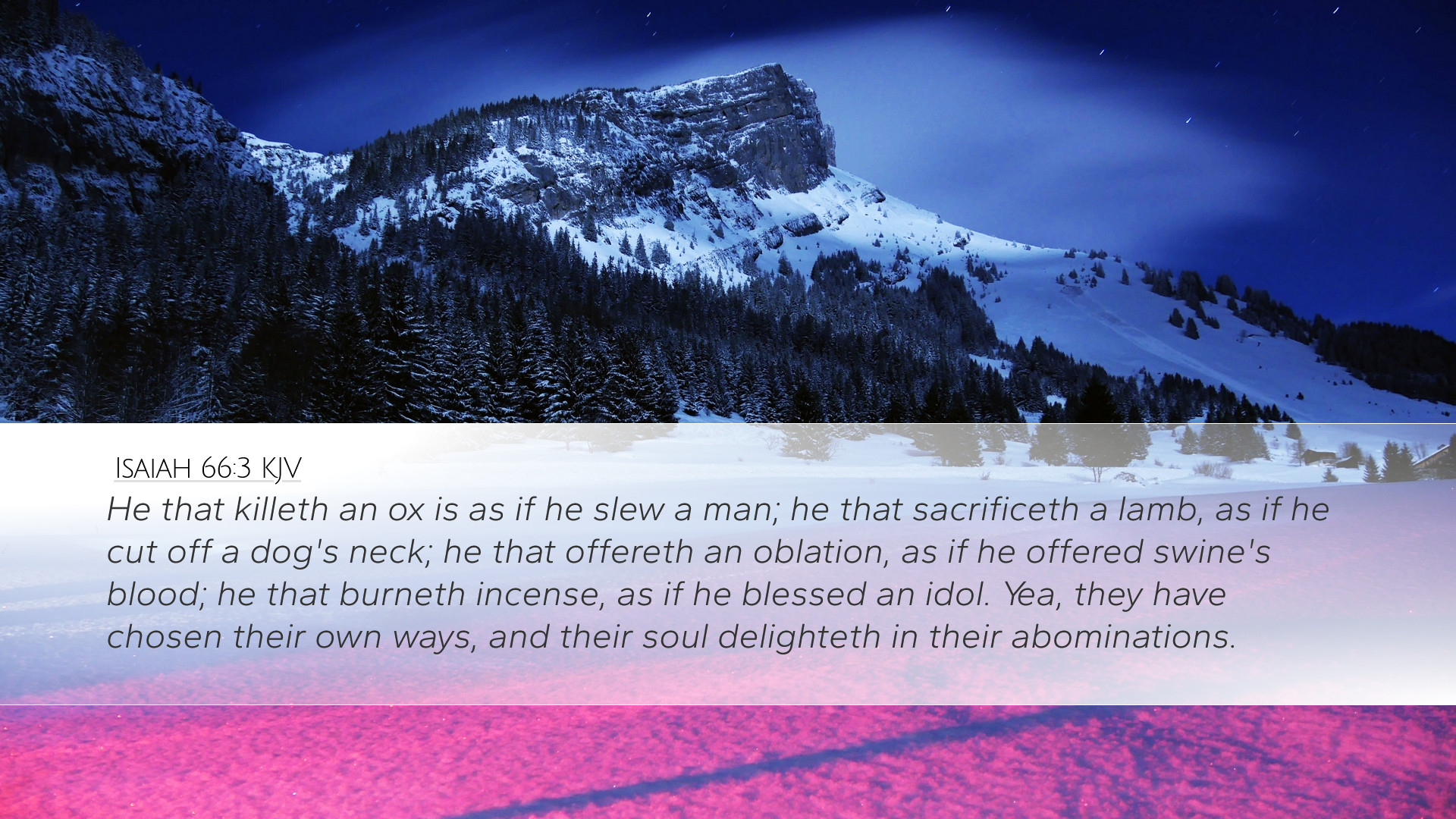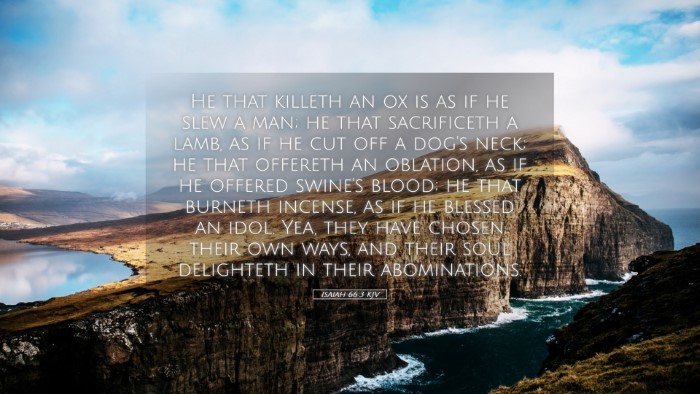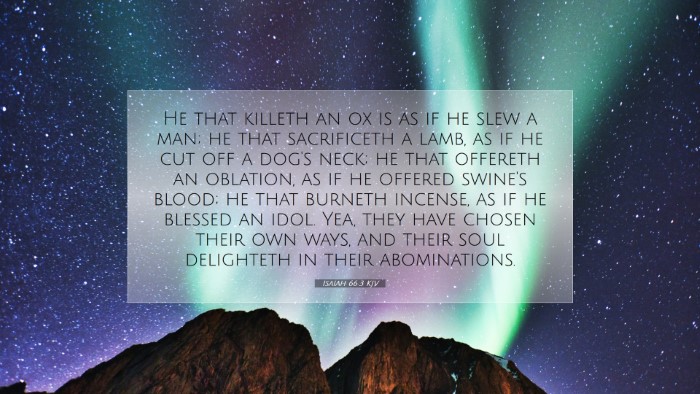Isaiah 66:3 - Exegetical Commentary
Verse Text: "But whoever kills an ox is like one who kills a human being; and whoever sacrifices a lamb is like one who breaks a dog’s neck; whoever makes a grain offering is like one who presents pig’s blood; and whoever burns memorial incense is like one who worships an idol. They have chosen their own ways, and their souls delight in their abominations."
Contextual Background
The book of Isaiah operates on multiple levels, serving as both a prophetic book focused on the impending judgment of Israel and a message of hope for restoration. Chapter 66 marks the culmination of Isaiah's prophetic message, where the Lord makes it clear that true worship transcends mere ritualistic practices and is instead found in the sincerity and purity of the heart.
Theological Insights
1. The Nature of True Worship
In this verse, the prophet Isaiah highlights the futility of ritual without genuine devotion. Matthew Henry emphasizes that the act of sacrifice, when conducted without faith and moral righteousness, is equated to heinous sins. The Lord rejects offerings made with a corrupt heart, pointing to a critical aspect of worship – that God desires a relationship over mere rites.
2. Symbolism of Sacrificial Practices
Albert Barnes elaborates on the various sacrifices mentioned. The ox, lamb, and grain offerings represent legitimate acts of worship in the Mosaic Law; however, their lack of spiritual depth renders them meaningless. Emphasizing the gravity of these sacrifices, Barnes points out that the identity of the offering is crucial; they symbolize an individual's heart condition before God. The harsh comparison to the breaking of a dog’s neck or offering pig’s blood highlights the abhorrence of spiritual hypocrisy.
3. Human-Defined Ways vs. Divine Standards
Isaiah states that the people have chosen their own ways, which leads to their condemnation. Adam Clarke notes that this reflects humanity’s tendency to define worship according to personal preference rather than aligning it with divine expectation. The inclination towards self-defined worship leads not to salvation but to abomination. Clarke’s insights resonate deeply in a contemporary context, inviting reflection on how personal preferences can jeopardize true worship.
Pastoral Applications
1. The Heart of Worship
Modern pastors are called to encourage congregations to examine their motives for worship. Isaiah 66:3 challenges leaders to ensure that worship settings promote authenticity and sincerity. A church that thrives on vibrant worship must prioritize teaching congregants about genuine humility, repentance, and devotion rather than simply following liturgical forms.
2. Avoiding Casual Approach to Sacrifice
The commentary encourages believers to avoid a casual approach to sacred acts. Just as the Israelites had turned the sacrificial system into empty rituals, today’s church can fall into a similar trap. Pastors are urged to highlight that every act of giving and worship should stem from a place of genuine devotion, reflecting a life transformed by grace.
Scholarship and Reflection
1. Implications for Theological Study
Theological scholars can draw from Isaiah 66:3 a deep well of reflection regarding the essence of worship. This verse serves as a critical reminder that practices should stem from theological integrity and should be rooted in a proper understanding of God's nature. Therefore, theological discussions should emphasize the necessity for spiritual renewal over religious formalism.
2. Continuous Self-Examination
Students of the Bible are encouraged to engage in continuous self-examination. Isaiah invites readers to ask whether their own religious practices align with God's expectations. A thorough study of this scripture can lead to deeper insights on personal devotion, corporate worship practices, and a renewed commitment towards living out one’s faith in a manner that pleases the Lord.
Conclusion
Isaiah 66:3 serves as a potent reminder that the heart of worship is not found in rituals but in a living relationship with God. Commentaries from Matthew Henry, Albert Barnes, and Adam Clarke reinforce the message that true worship is about aligning our lives with His nature, avoiding hypocrisy, and ensuring that our offerings—whether sacrifices or acts of service—are genuine expressions of our love and devotion. As we seek to apply these truths, may our practices in worship reflect a heart that truly desires to honor God above all.


